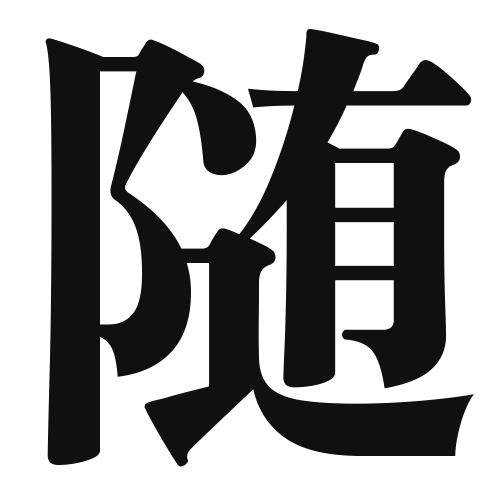1. Overview of Meaning
The kanji “随” (pronounced “zui”) generally means “to follow” or “to accompany.” It conveys a sense of compliance or being in accordance with something or someone.
2. Formation and Radical
Formation of the Kanji: The kanji “随” is a phonetic-ideographic character (形声文字). It combines the meaning of “to follow” with phonetic elements that suggest its pronunciation.
Radical: The radical for “随” is “辶” (the walking radical), which relates to movement or travel, reinforcing the idea of following or accompanying.
3. Examples of Usage
Common Words and Phrases: Some frequently used words that include “随” are:
- 随時 (zuidai) – “at any time”
- 随行 (zuikou) – “to accompany”
Example Sentences in Daily Conversation:
- 彼は私に随行してくれました。 (Kare wa watashi ni zuikou shite kuremashita.) – “He accompanied me.”
- 随時お知らせします。 (Zuidai oshirase shimasu.) – “I will inform you at any time.”
4. Synonyms and Antonyms
Similar Kanji: A similar kanji is “従” (juu), which also means “to follow” but often implies obedience or submission.
Opposite Kanji: An antonym is “逆” (gyaku), meaning “reverse” or “opposite,” which conveys a sense of going against or not following.
5. Cultural and Historical Background
Relation to Japanese Culture: The concept of following or accompanying is significant in Japanese culture, especially in social contexts where harmony and cooperation are valued.
Proverbs and Idioms: One relevant idiom is “随分お世話になりました” (zuibun osewa ni narimashita), which means “I have received a lot of help,” reflecting gratitude for support and companionship.
